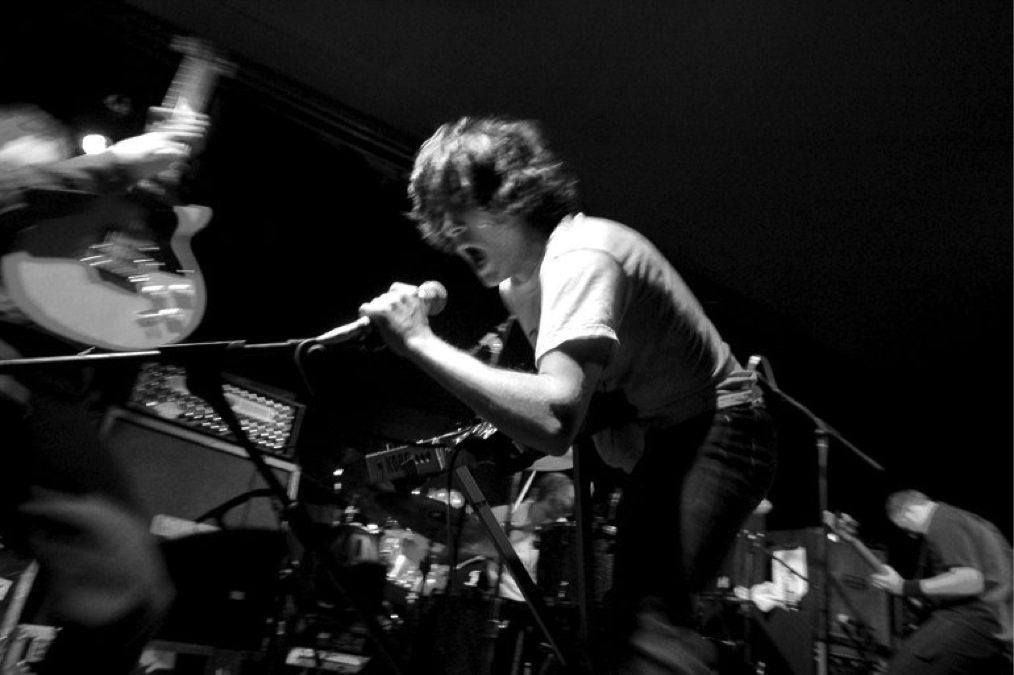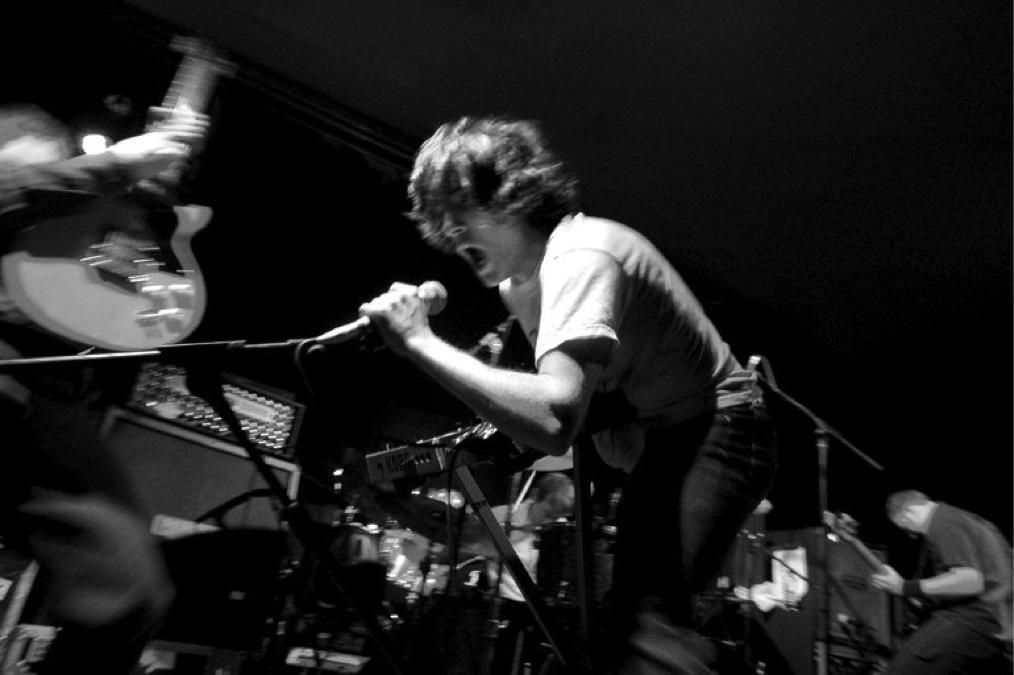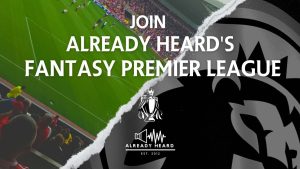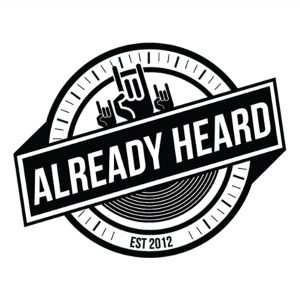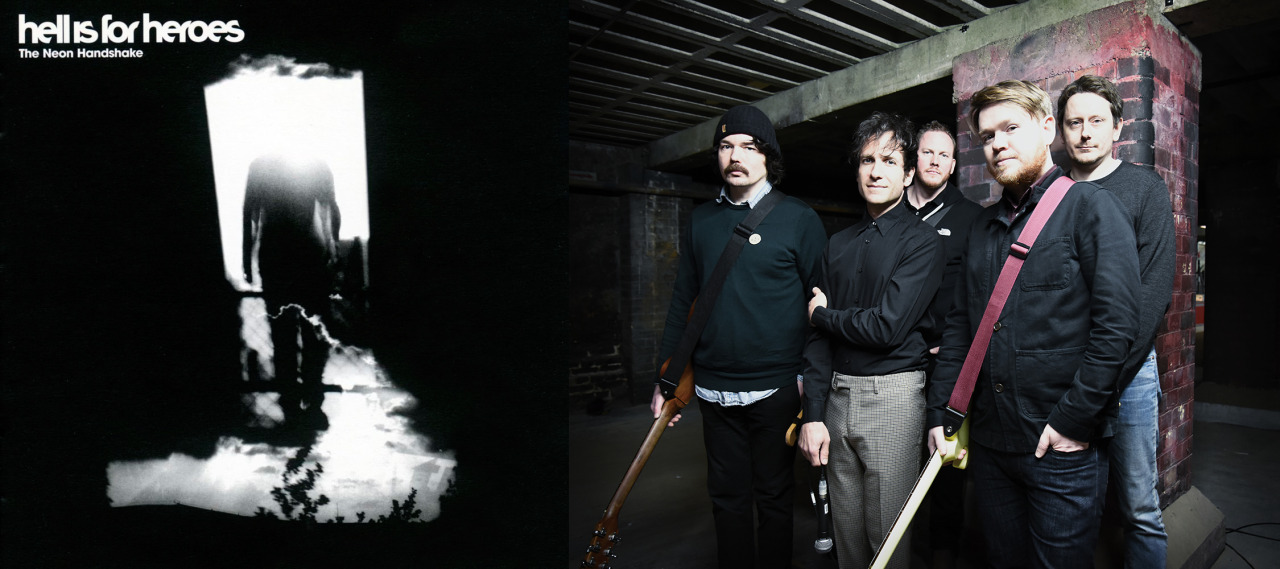
At the start of the century, guitarist Will McGonagle and drummer Joe Birch bid farewell on their time with 90s “Britpop” punk band, Symposium. They soon reconnected with former school friends James Findlay (bass) and Tom O’Donoghue (guitar) and soon before they knew it, vocalist Justin Schlosberg came on board through mutual friends. By September 2000, the quintet would become Hell Is For Heroes.
Over the next three years, the Camden-based group would rapidly ascend from playing small shows in Putney to playing major festivals, touring with fellow rising British rockers Biffy Clyro and Hundred Reasons, as well as joining angsty nu-metal breakout band Papa Roach on a jaunt throughout the UK and Europe.
Throughout this time, Hell Is For Heroes would gain the attention of fans, the media, and perhaps most importantly, major labels. With the band less than a year old, they inked a deal with EMI in July of 2001 yet a debut full-length wouldn’t see the light of day until February 2003.
Nevertheless, that debut was worth the wait as ‘The Neon Handshake’ as its 12 songs captured the band’s energetic shows, blending it with heavy, soaring melodies delivered with an abundance of emotion. Preceded by a trio of outstanding singles; ‘You Drove Me To It’, ‘I Can Climb Mountains’ and ‘Night Vision’, Hell Is For Heroes’ debut arrived in the midst of a wave of excitement and expectation.
Recorded in two studios in two different countries, including the legendary Sound City in Van Nuys, California, HIFH worked with the producing partnership of Pelle Henricsson and Eskil Lövström (Refused, Poison The Well, In Flames) to create a record that would help pave the way for a new group of British rock bands. Embracing a melodic post-hardcore sound with an abundance of confidence, HIFH’s patience and hard work were rewarded with critical praise and support from MTV2, NME, Kerrang!, Drowned In Sound and Rock Sound.
It also had a commercial impact, reaching the UK Album Chart’s Top 20. In the months that followed, HIFH would tour relentlessly playing shows with Feeder, making festival appearances throughout the UK and Europe before taking out their British Rock contemporaries Aerogramme, Kinesis, and perhaps most notably, Reuben.
Alongside Reuben, Hundred Reasons, and Biffy Clyro, Hell Is For Heroes considerably defined an era of underground British bands that refused to imitate the current trends dominating rock at that time; nu-metal. Instead, they collectively showed ardent originality, all with their own unique characteristics.
In the years that followed ‘The Neon Handshake’, the uncertainty of the evolving music industry meant those at EMI who had worked on their debut, were moved on. Eventually, HIFH took control back of their creativity, 2005’s ‘Transmit Disrupt’ was self-released and later re-released on Burning Heart Records. While it captures the same frantic energy of their debut, the might of a major label backing meant it failed to grasp the same momentum.
By 2008 and following the release of their third record, simply titled ‘Hell Is For Heroes’, the band decided to call it quits. Nevertheless, in November 2012 they would join Hundred Reasons to mark the respective 10th anniversaries of their debut albums. It was a brief return and a celebration of both band’s achievements, bringing together those who fondly remember a significant period in modern British Rock.
Hell Is For Heroes’ influence has weaved its way in and out for the past 15 years. From Reuben, Funeral For A Friend, Fightstar, Million Dead and Yourcodenameis: Milo to Enter Shikari, Lower Than Atlantis, Deaf Havana, Marmozets and Lonely The Brave, ‘The Neon Handshake’ is one of the foundations that has spurred on a generation of bands.
As they kick off a UK tour celebrating ‘The Neon Handshake’’s 15th anniversary, Already Heard spoke to a variety of people to share their memories of Hell Is For Heroes and to discuss their influence.
What are your memories of HIFH and ‘The Neon Handshake’?
Jamie Lenman (formerly of Reuben): My overriding memory is of the tour they took us on, the first support tour we ever did. We were nobody at all, I think we’d had one single out, and they had this brilliant successful album and for some reason, they asked us to go with them. We had a fantastic time, we learned so much.
Kevin Douch (Big Scary Monsters Records): My first memory is of my friend at school turning up one day with the band’s first EP (‘Sick Happy’) and buzzing about how good it was. Annoyed that he’d discovered them first, I said I didn’t like it.
By the time ‘The Neon Handshake’ was released I’d given up trying to pretend anymore and was a big, public fan! From there I went to see the band play countless times and, along with ‘Ideas Above Our Station’ and a few other records, totally defined that period of my life.
Josh “Posh” Redrup (Palm Reader): I remember when it first came out, demanding that my dad take me to Woolworths so that I could buy a copy. I think it was one of the first records I’d ever bought with my own money. I’d pretty much just listened to skate punk up until that point, and they were the first band of the British alt-rock scene that really grabbed my attention. It’s opened the door to a lot of new genres for me.
Matt Sheldon (Blanket): I’ll never forget seeing HIFH at the Leeds Festival in 2003 right after ‘The Neon Handshake’ was released. The Radio One Stage was packed out and the energy in the tent was just unreal. A thousand or so fans bouncing up and down to ‘You Drove Me To It and Night Vision’, just thinking about it gives me goosebumps. They were truly a band owning the moment they were in, and it was a really special thing to witness live.
Chris Woollison (Poly-Math): This record was absolutely played to death during my college and university years. It helped influence my playing style, and still does, and my bands at the time, were all thinly veiled rip-offs of Hell Is For Heroes.
Tim Kramer (Drones): I remember as a kid watching a lot of MTV2, Kerrang! and Scuzz. Hell Is For Heroes were always being played at the time, along with bands like Reuben and Hundred Reasons, and it really resonated with me. It was just as I was getting into heavy music, and their tracks had this cool balance of melody, hooks and heaviness, while also having this nostalgic quality to them. I think that’s what initially had me hooked.
Sam Stead (Merrick’s Tusk): I remember being pretty much the only one of my mates who listened to HIFH more than Hundred Reasons (who are still one of my favourites). I also remember the singer in one of my first bands originally refusing to listen to them as they weren’t Symposium… pretty sure he saw sense eventually.
Ben Adsett (Thirty and Miserable): I heard ‘Sick/Happy’ on a Kerrang free sampler and instantly fell in love. Luckily a month later they played at the Gloucester Guildhall and my parents let a ridiculously irresponsible teenage me go to my first gig alone. I drank beers in a park and went into the venue and remember being blown away by the entire occasion. Rueben were the perfect warm-up act but nothing compared to Hell Is For Heroes, there was so much energy and emotion. To this day I have rarely felt as drained and delighted walking out of a gig.
Shane Sanderson (Youth Salute): My first memory of Hell Is For Heroes is hearing the intro to ‘I Can Climb Mountains’. I think the music video was on some late night MTV2 rocks show or something. After hearing it, I was happy to discover that my older brother actually had ‘The Neon Handshake’ on CD so I nabbed it. It will have been around the time I was straying from nu-metal music and discovering loads of other things.
Jonny Bateman (Hey Gigantic): Everytime I hear that record it takes me back to my University days and seeing HIFH support Biffy Clyro at Concorde 2, Brighton. It was an amazing gig! Jonny (Haylock – Hey Gigantic’s lead guitarist) and I met at uni and were in a band at that time, and ‘The Neon Handshake’ was such a massive album for us and our friends.
Matt Simper (Grieving): I remember them touring the album when I was at University – the internet reliably informs me that this was February 24th, 2003 at the Waterfront in Norwich. I will never forget that gig as it was the first time that I gave myself whiplash through moshing too hard. I had a ‘Neon Handshake’ poster on my bedroom door all through University.
What are the stand out tracks on ‘The Neon Handshake’ and why?
Jamie Lenman: That first version of ‘You Drove Me To It’ will always be special to me, I remember the first video was so lo-fi you could tell they’d done it themselves, but it was still great and it still got on TV, which encouraged us to make our own, which got on TV as well! I always loved ‘Few Against Many’ too, I got to know it from their shows. We used to watch their whole set every night.
Kevin Douch: ‘I Can Climb Mountains’ was always my favourite. For one, it’s a massive hit! But also, as soon as I saw the video with a close up of Justin’s trainers I was obsessed and went everywhere trying to buy a similar pair. The first (and maybe only?) time I’ve been so infatuated by a band’s fashion – or lack of it, as I imagine the other members would say!
Josh Redrup: My favourite track is ‘Three of Clubs’. For me, it sums up the album as a whole, a great mix of post-hardcore aggression and melody. ‘Retreat’ is possibly the best album-ender ever.
Matt Sheldon: ‘Out Of Sight’ was always one for me that just kicks you right in the face with an explosion of distortion and screams, only to break down to a simple but perfect bass lick and then back in with so much drive and intensity. It’s just a really great song that shows all the best elements of HIFH.
‘Slow Song’ is the sort of song you’d find on so many records of this time, every record had to have its ‘slow song’ or its ballad, the name feels like an obvious dig at this. But this isn’t a by-the-numbers ballad, this is a song with real heart, which takes you on a journey with the angelic but dynamic guitars and the anthemic passionate tones of Justin Schlosberg.
Mark Harfield (Gloo): ‘Few Against Many’ and ‘Sick/Happy’ were the insane ones for me – I quite literally had heard nothing that made me feel that angry before and was instantly into ‘em.
Chris Woollison: ‘Few Against Many’ (that vocal melody) and Out of Sight. I love that opening guitar riff and drum pattern. So heavy!
Tim Kramer: My favourite track was probably ‘Night Vision’. That track gave me pure chills.
Sam Stead: ‘Three of Clubs’. I’ve got the lyrics tattooed as they resonate so much for me; “Open doors that I can walk through/Open eyes that I can see through…” Just a kind of ‘Yeah, I can do whatever I want’.
Ben Adsett: I love this entire album, it’s the kind of release that if you are walking somewhere with it on you have to take a longer route to hear the ending. Picking stand out tracks is like picking a favourite child and like most parents, I can easily make a conflicted decision: ‘Five Kids Go’ from the moment the robotic voice merges into choppy distorted guitars there is a sense of wonder, lyrically poignant and the fragile vocal cracks amongst all that strength just take it to the next level. ‘Sick/Happy’ was my starting point with the band and every time I hear it, the hairs on my neck stand up. The combination of loud and quiet is the same formula as Deftones etc. but there is something significantly more powerful in the contrast in this case.
Shane Sanderson: I can remember thinking ‘Out Of Sight’ was just so heavy when it came in after the opener and the steady build of ‘Slow Song’ quickly became my personal highlight on the record.
Matt Simper: ‘I Can Climb Mountains’ was the stand out track on the record. The unmistakable guitar at the beginning, that huge anthemic chorus and vocal hooks – particularly at the end of the track. ‘You Drove Me To It’ was also a great track – similar to the sound of Hundred Reasons. Those call and response dual vocals!
How did you discover Hell Is For Heroes?
Jamie Lenman: We discovered the band because when we were trying to get signed, they were all the labels could talk about. People would say, ‘yeah, bands like you and Hell Is For Heroes…’ and so we put ourselves in the same bracket mentally, but then they did this great record with our favourite producer. They had all this success and we were still struggling which made me very envious, hence that slightly bitter line in our song ‘No One Wins The War’. I wanted to be where they were and we were lagging behind. Very frustrating at the time. But then they gave us a leg up on their tour – what a bunch of geniuses!
Josh Redrup: I’m pretty sure I saw the video to ‘I Can Climb Mountains’ on MTV2, back when it still showed music.
Matt Sheldon: I discovered HIFH through music television channels like Kerrang!, which were a huge deal at the time, but they really stood out amongst the pop-punk and nu-metal bands filling the screens at the time. This was how I discovered bands like them, Hundred Reasons and Rival Schools, and realised there was a whole world of alternative rock I needed to explore.
Mark Harfield: I think I first came across them on Kerrang! TV after seeing the ‘I Can Climb Mountains’ video and feeling nicely refreshed from the usual flurry of American pop-punk. I found out that they were British, then preceded to go and watch them at any show they played within a 50-mile radius. They’re probably my most watched live band at about nine shows I think!
Chris Woollison: I was played ‘The Neon Handshake’ by my old band and saw them live soon after. I forget where, but was hooked from then on.
Sam Stead: We didn’t have the luxury of Spotify back in the day, so it was word of mouth from mates who’d seen them support Biffy. From then it was Kerrang and buying CD singles when they were still cool – I’ve still got my copy of ‘I Can Climb Mountains’ back from 2003.
Jonny Bateman: A friend of mine at college played me ‘I Can Climb Mountains’ before the album was out. I was totally hooked! That chorus was just so huge. We learnt it immediately and used to cover it in my first band.
Matt Simper: A girl that I was into at UEA liked them – so I did what every gooey eyed 18-year-old did and bought all the records of all the bands she liked. Alas, it was unrequited affection and she went off with one of the bigger boys with nicer hair.
How/why are they an influence on you/your band?
Jamie Lenman: I will say this to anyone who listens – Reuben the band and the three individuals owe so much to Hell Is For Heroes and that tour they took us on. Basically, they taught us how to tour, but most importantly how to treat your support bands, which we’ve never forgotten.
Sometimes the main band can treat the supports like utter rubbish and it’s certainly happened to us, which was shocking after going out with HIFH, but they were always so generous to us – never ate into our soundcheck, shared their rider with us when we were starving, took time to be our friends. It’s actually quite rare for the bigger acts to do this and we made a point of treating our supports like that – I still do. I love each and every one of those boys with my whole heart.
Kevin Douch: I was never in a band and, despite how much I loved The Neon Handshake, it couldn’t convince me to join one, but it certainly had an influence on my music taste. Therefore the path BSM took over the following years, arguably right up to the present day. Actually, not at all arguably, we’re re-releasing the bloody record, so you can’t get much more connected and influenced by something than that!
Matt Sheldon: While Blanket doesn’t obviously sound like HIFH, there are certainly some influences such as the chord progressions in songs such as ‘Slow Song’ which build and build to huge dynamic changes, which is something evident in much of our music. Even the famous sounds of the drums in the opening seconds of ‘You Drove Me To It’ is something that can clearly be heard on one or two of our newer songs that are yet to be released.
Mark Harfield: In terms of the musical influence, I think that kind of this is always a bit subconscious, but I can guarantee that without HIFH, my playing and general outlook toward music would not be the same.
Chris Woollison: It was part of my introduction to heavier guitar music and post-hardcore vocals, but they still had a very British sound. So it was easier to relate to than a lot of the more classic sounding American bands of the time.
Tim Kramer: I think they taught me a lot about songwriting. I’ve been a massive fan of the British rock sound from a young age, so they definitely gave me a certain identity.
Sam Stead: For me, it’s the simplicity of the songs in good old Drop D tuning. ‘The Neon Handshake’ is banger after banger and it’s always an album I go back to when I need some inspiration. I play a Gordon Smith GS1 now too, just because Hell Is For Heroes did.
Shane Sanderson: The whole album is great front to back and still sounds fresh today. It was the mix of dark, moody stuff and the massive hooks that Youth Salute draw influence from.
A few years ago Hundred Reasons came out and toured ‘Ideas Above Our Station’ in full with Hell Is For Heroes supporting, so me and our bassist, Bell, jumped on tickets as soon as they were on sale. I enjoyed everything the band put out after ‘The Neon Handshake’ as well, it was a shame that they just seemed to fade out not long after.
Jonny Bateman: They’re just kind of ingrained in all the compositions and dynamics of our band. That blend of indie, punk and post-hardcore is what we love and grew up on, and it still influences us all these years later.
How important were HIFI in influencing underground British rock?
Jamie Lenman: I remember someone saying at the time that they were like the British Deftones, which, aside from the vocals I think is a pretty good comparison. Monster riffs by the absolute truckload, very groove-laden, a huge sound all around. I’m not sure I could say that you can hear a lot of that in what British bands are doing today, but it must be going into the pot somewhere because you can easily see what esteem and high regard they are held in by people now. And I am one of those people!
Kevin Douch: I’m interested to see what other band’s say on this subject but certainly, from my outside perspective, it looked as though they were hugely influential to a great number of artists. That era – them, Hundred Reasons, Reuben, Million Dead, early Biffy Clyro and so many more – was an incredible period for British rock music and I think every one of those bands was influenced by and held influence over each of the others during that time.
Josh Redrup: I think they influenced a very specific age group of young bands. With bands like HIFH, Reuben, Million Dead & Yourcodenameis: Milo, all thriving at the time, it was hard not to sit up and take notice.
Matt Sheldon: I think the importance of HIFH, in terms of underground British rock specifically, is that without bands like them (and Hundred Reasons) many people would not even be aware the scene existed. Most of the music we, as teenagers, were being presented at the time within the alternative music scene was from North America. It wasn’t until bands like HIFH became as popular as they did, that so many more eyes were opened to the British scene, and therefore paving the way to so many more bands that came after them.
Mark Harfield: It was really exciting for me when I first found out they were British. As a naive child, I had come to the conclusion that the kind of music I liked had to be made by Americans. Theirs was an absolute saviour of an album for me and had a totally insane live show to go with it.
Chris Woollison: So many influential British bands came about around the time of HIFH; Reuben, Million Dead, Idlewild, Biffy, it’s hard to know who influenced who but they all definitely had a sound that defined the British post-hardcore scene and so many bands that came after them. That was a good time for British guitar music!
Tim Kramer: Apart from Reuben and Hundred Reasons, I don’t think there’s been anyone as important in the British rock scene to me.
Sam Stead: In my opinion, their influence is massive. You just have to look at the kind of response they get to a 15-year anniversary tour. They toured with the likes of Biffy Clyro too and they’re obviously pretty huge now. You can tell the influence of a lot of bands from that era in the bands around today. Getting name-dropped in a Reuben song is always a nice touch too.
Ben Adsett: British rock was pure simplicity as a genre, there was no need for a new/nu to precede it. HIFH made up for the simplicity of the genre with a complex sound that embraced hooks. I think they are probably a seminal band for a lot of people in their early thirties because until HIFH and Hundred Reasons found chart success, the radio and music TV channels were full of US bands that were hard to connect or take ownership from. HIFH were ours and for a while seemed like one of the biggest bands in the country to my blinkered eyes.
Shane Sanderson: “Brit Rock” seemed to be on a massive upswing with bands like Reuben and Hundred Reasons making waves but Hell Is For Heroes had a darker, heavier side to them which was always appealing to me.
Jonny Bateman: At that time, in particular, they were a huge influence on me and the music I was listening to. Before then myself and friends were listening to mainly American indie and punk rock bands, but then in the early 2000’s there was a huge surge of awesome UK alternative rock bands and think HIFH were a huge impact on that time and that scene. Along with Hundred Reasons, Reuben, Million Dead, Biffy Clyro, The Copperpot Journals, This Girl, Stapleton and loads more. It was an amazing time for homegrown talent.
Matt Simper: Up until 2003, I was very much into the UK and US punk scene – specifically all the Household Name bands. Hell is for Heroes put me down a different route and onto what was then the emerging UK alt-rock/emo sound – so Hundred Reasons, Million Dead, Biffy Clyro, Idlewild, My Vitriol, etc. This then put me onto the more angular US sound of the 80s and 90s which is a significant influence on this band.
All those bands above had clearly been listening to the likes of Fugazi, Sonic Youth, Husker Du etc. and they turned what was a predominantly American sound into a British one, and a scene all of its own. It was an exciting time. That approach to off-kilter guitars matched to big vocal hooks is something we absolutely aspire to. Our sound is far more akin to back then that a lot of the auto-tune gloss of today.
Hell Is For Heroes will be touring the UK on the following dates. Support comes from A and Vex Red.
February
16 o2 Academy, Bristol
17 o2 Ritz, Manchester
19 o2 Institute, Birmingham
20 o2 ABC, Glasgow
22 Rock City, Nottingham
23 Pyramids, Portsmouth
24 o2 Shepherd’s Bush Empire, London
‘The Neon Handshake’ by Hell Is For Heroes is available on vinyl through Big Scary Monsters Records now.
Hell Is For Heroes links: Facebook|Twitter
Words by Sêan Reid (@SeanReid86)

